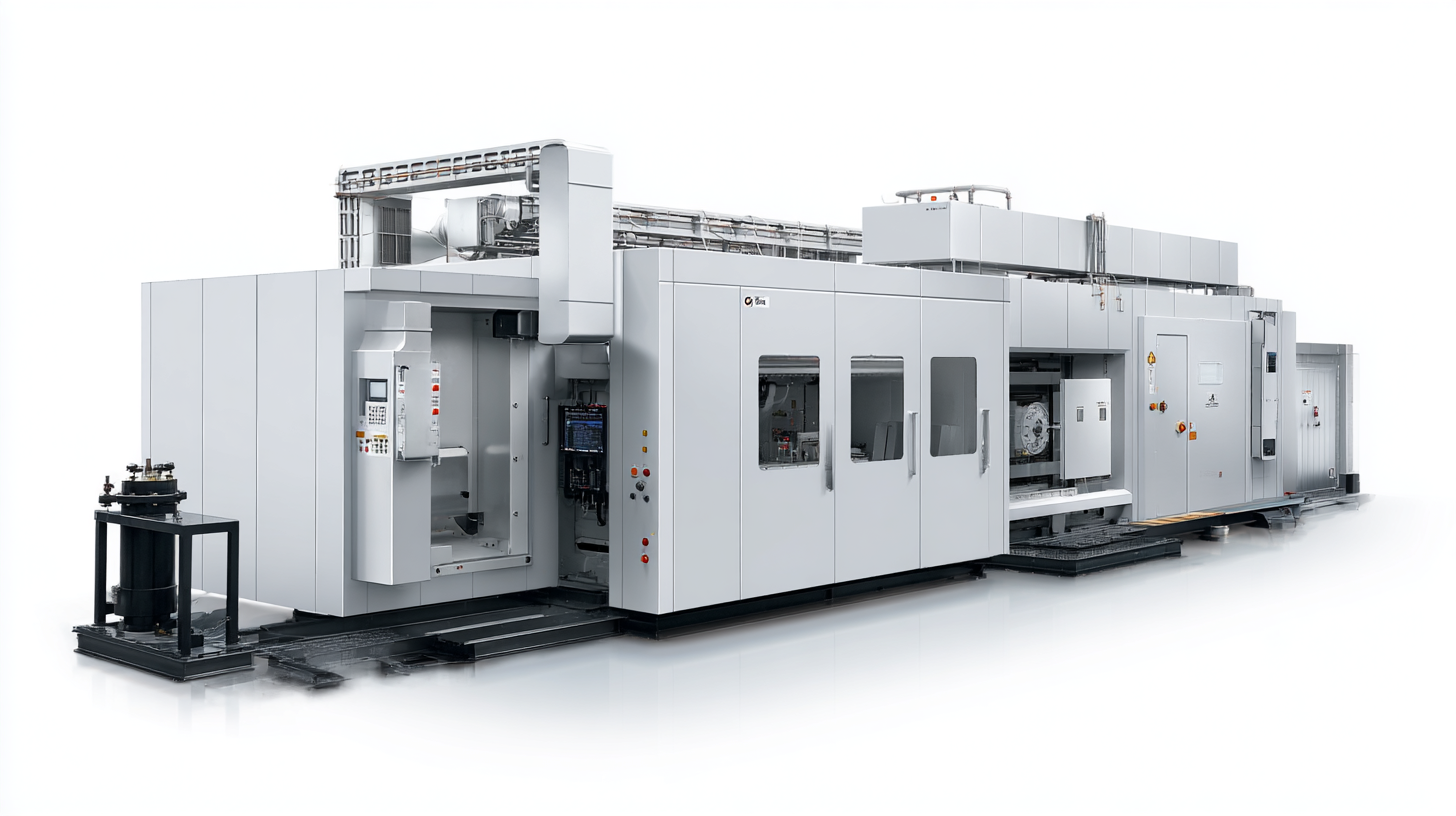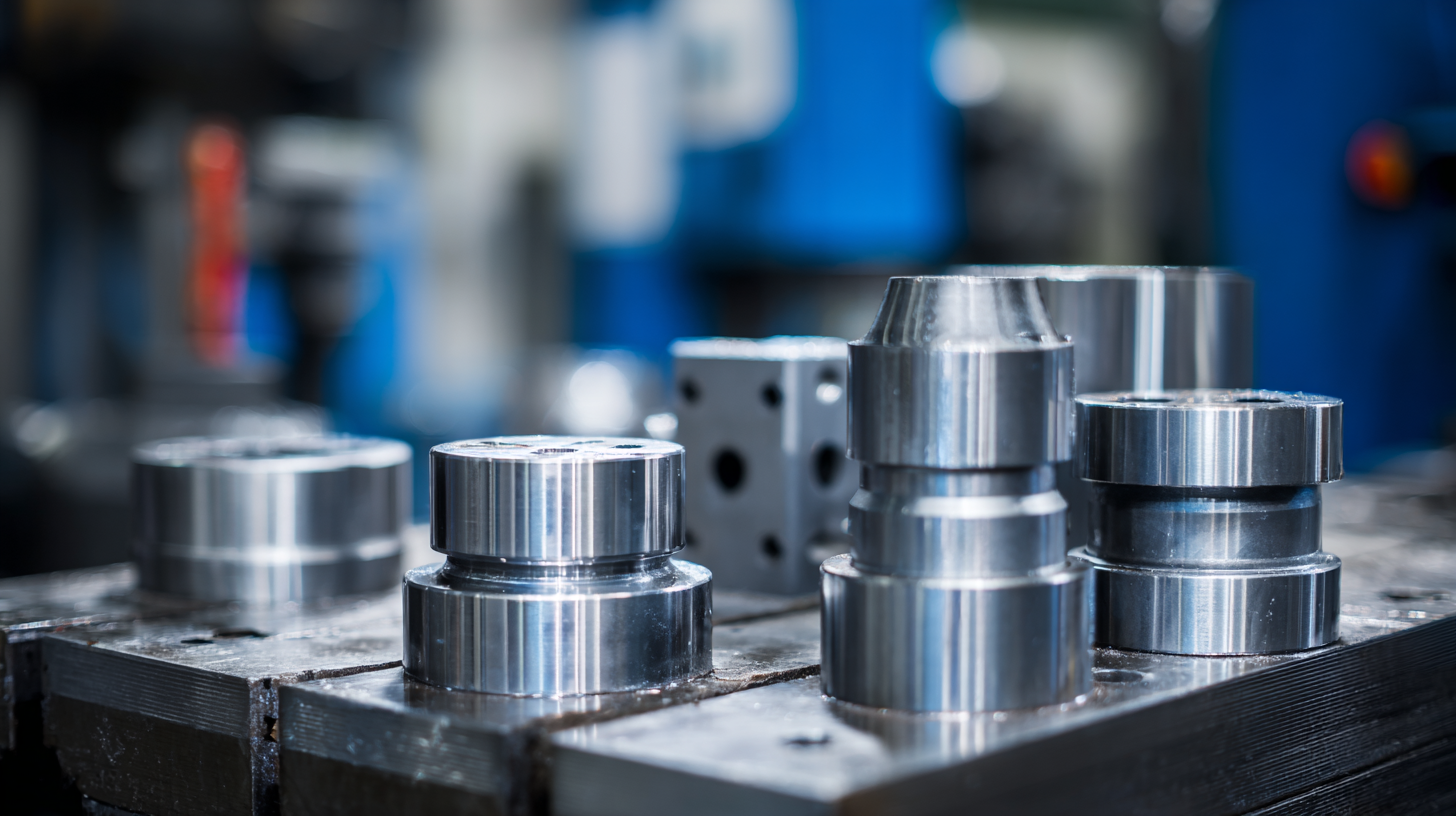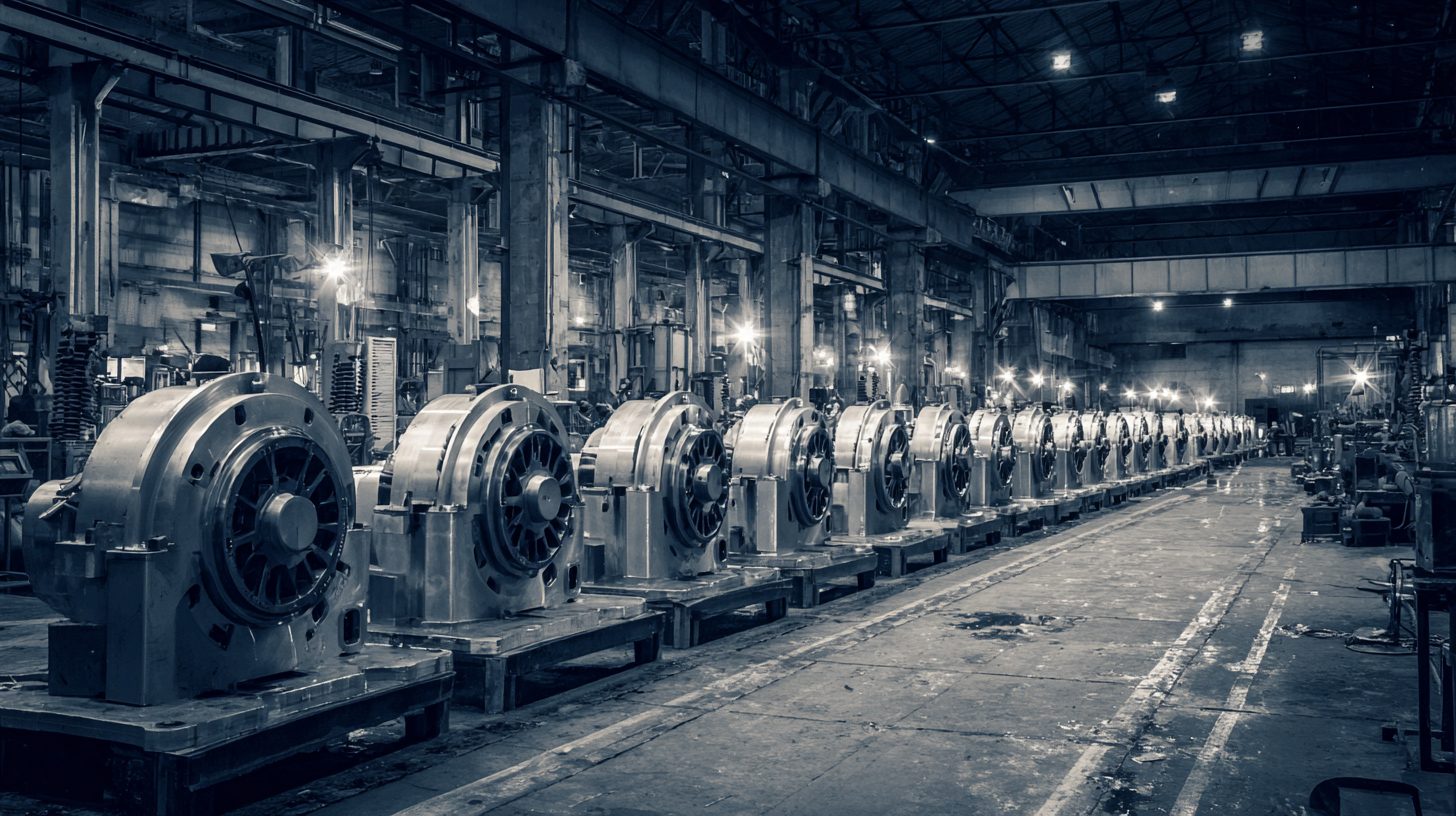In recent years, China has emerged as a global leader in manufacturing, particularly in the specialized sector of Pump Ss Precision Casting. According to industry reports, the global castings market is projected to reach $200 billion by 2025, with precision casting segments experiencing significant growth due to increased demand from various industries, including automotive, aerospace, and energy. The quality and precision associated with Chinese manufacturers have set a benchmark, driving exports to new heights. Leveraging advanced technology and skilled labor, China’s manufacturing sector offers unparalleled capabilities in producing high-quality Pump Ss Precision Castings, which are essential for ensuring the reliability and efficiency of pumping systems worldwide. As a result, Chinese manufacturers are not only meeting international standards but are also paving the way for innovation and excellence in the global market.

After-sales service plays a pivotal role in the precision casting pump industry, particularly when addressing the needs of global markets. Customers invest significant resources into selecting the right pump for their operations, and without adequate support after the purchase, the benefits of their investment may diminish.
Comprehensive after-sales services ensure that issues are promptly addressed, optimizing performance and extending the lifespan of the pumps. This support includes routine maintenance, troubleshooting, and timely availability of spare parts.
Moreover, strong after-sales service can significantly enhance customer satisfaction and loyalty. By providing detailed training on pump operation and maintenance, manufacturers not only equip their clients with the necessary skills but also foster a deeper relationship based on trust and reliability. This is especially critical in international markets where cultural differences and varying regulations can complicate operations.
Manufacturers that prioritize after-sales support demonstrate their commitment to customer success, ultimately distinguishing themselves in a competitive landscape and promoting sustained growth in their precision casting pump business.
Understanding the repair costs for precision-made pumps is crucial for industries aiming to optimize operational efficiency. According to a report from the International Pump Manufacturer Association, nearly 40% of maintenance budgets in manufacturing are allocated to pump systems. This statistic underscores the importance of understanding the financial implications tied to repairs, especially as precision casting continues to gain traction for producing high-quality pumps tailored for global markets.
Precision-made pumps, known for their superior performance and longevity, often incur higher initial costs due to sophisticated manufacturing processes. However, their inherent durability can lead to reduced repair frequency and lower long-term maintenance expenses. A study by the Global Pump Market Insights indicates that investing in precision casting can lead to cost savings of up to 25% over a pump's lifespan. This effectiveness not only minimizes repair costs but also enhances overall operational uptime, making precision pumps a worthwhile investment for businesses aiming for sustainable growth in a competitive landscape.

In the manufacturing sector, particularly for high-precision products like pumps, customer support plays a pivotal role in ensuring product longevity and customer satisfaction. Robust customer support can significantly enhance the user experience, as demonstrated by recent industry reports indicating that companies with effective support structures see a 25% increase in customer retention rates. This suggests that providing comprehensive assistance not only solidifies customer loyalty but also prolongs the life cycle of manufactured goods.
To implement effective customer support, manufacturers should focus on training support staff in product knowledge and problem-solving techniques. Regular follow-ups post-purchase can also be beneficial; a study found that proactive customer engagement can decrease product returns by up to 30%. This type of engagement not only enhances user satisfaction but also empowers customers to utilize products to their full potential.

Another crucial tip is to invest in technology that facilitates seamless communication between manufacturers and customers. AI tools can analyze user data and feedback, allowing companies to anticipate issues before they arise. According to industry insights, businesses implementing such technology report a 40% improvement in service efficiency, streamlining operations and reducing costs while enhancing overall customer experience.
In the competitive landscape of global manufacturing, after-sales service emerges as a crucial factor for success. A recent report by McKinsey illuminates that companies with strong after-sales service can enhance customer loyalty by up to 30%, significantly impacting their bottom line. For manufacturers like those in China focusing on precision casting for pumps, providing exceptional after-sales support is vital. This ranges from responsive customer service to offering comprehensive maintenance packages, which can differentiate them in crowded markets.
For instance, a survey conducted by Bain & Company highlights that 80% of customers prioritize after-sales service quality when selecting a supplier, especially in industries like manufacturing where equipment reliability is paramount. Chinese manufacturers recognized for their excellence in manufacturing must invest not only in product innovation but also in building robust after-sales service frameworks. By doing so, they can cater to the increasingly sophisticated demand of global markets, driving both growth and market share in an era where service quality is closely linked to competitive advantage.
| Market | Service Response Time | Warranty Period | Service Coverage | Customer Satisfaction Rating |
|---|---|---|---|---|
| USA | 24 hours | 2 years | National | 85% |
| Germany | 48 hours | 3 years | EU-wide | 90% |
| Japan | 36 hours | 1.5 years | Nationwide | 88% |
| Brazil | 72 hours | 1 year | Regional | 80% |
| India | 48 hours | 2 years | National | 83% |
In today’s competitive landscape, reducing maintenance expenses in pump operations is essential for maximizing efficiency and profitability. One effective strategy is to implement a proactive maintenance program that emphasizes regular inspections and monitoring. By utilizing advanced technologies such as IoT sensors and predictive analytics, operators can identify potential issues before they escalate, significantly reducing downtime and costly repairs. This shift from reactive to proactive maintenance can lead to long-term savings and improved performance.
Another key approach is to invest in high-quality pump components, such as those produced through precision casting. By choosing pumps that are specifically designed for durability and efficiency, companies can minimize wear and tear, thereby extending the lifespan of equipment. Additionally, driver technologies that optimize operational parameters can further enhance pump performance and energy efficiency. Collaborating with manufacturers known for their excellence in casting processes allows businesses to achieve higher reliability while cutting unnecessary maintenance expenses in the long run.
